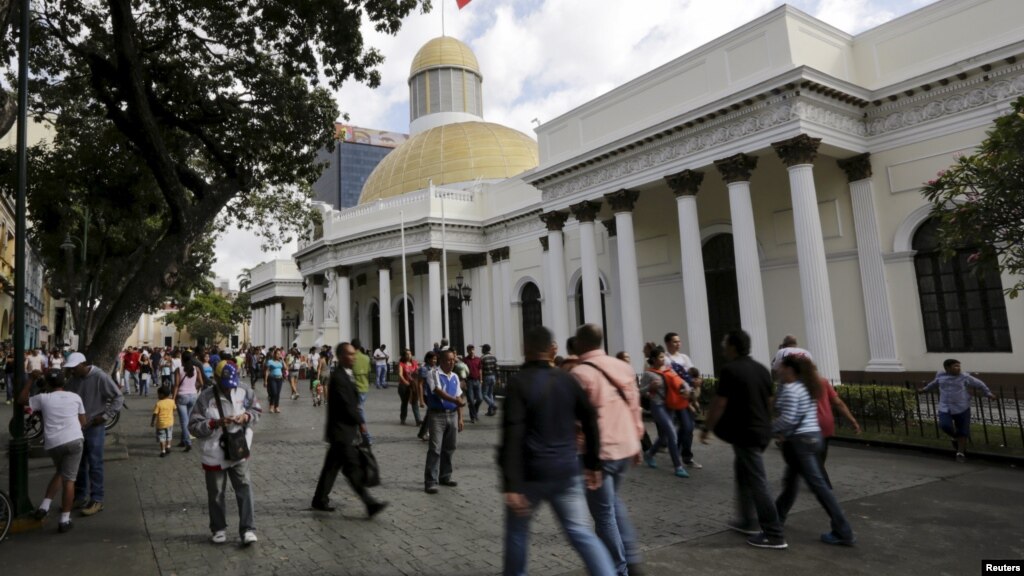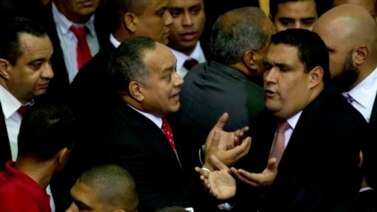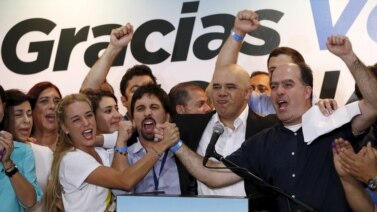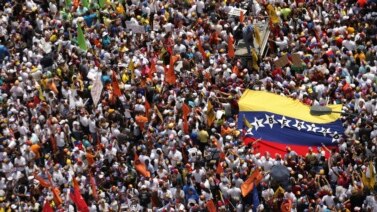
Oil-rich Venezuela appears to be entering a time of political instability.
The conflict between the socialist government of President Nicolas Maduro and the opposition-controlled National Assembly is worsening.
Earlier, a court ruled that three opposition members could not be part of the assembly. But last week, the legislature defied the order and made them members. On Monday, the Supreme Court ruled that the assembly cannot move forward until the three opposition lawmakers are removed.
The three give the opposition enough votes in the assembly to remove Supreme Court justices. With their votes, the assembly can also write a new constitution and permit citizens to vote on legislation.
Last month, the opposition coalition Democratic Unity Roundtable won parliamentary elections.
Sean Burges studies South American politics. He is a researcher at the Australian National University. He says the best that can be hoped for now is that both sides will understand that the conflict can be an opportunity to reach agreement.
He says the president and the opposition need to work together to improve the economy, which has been in a recession. The country is also suffering from high inflation, a shortage of goods, rising crime and falling oil prices.
I’m Christopher Jones-Cruise.
VOA's Victor Beattie reported on this story from Washington. Christopher Jones-Cruise adapted it for Learning English. Kathleen Struck was the editor.
What happens in your country when the president and legislature disagree? We want to hear from you. Write to us in the Comments Section, or visit our Facebook page.
Words in This Story
instability – n. unrest; disorder


